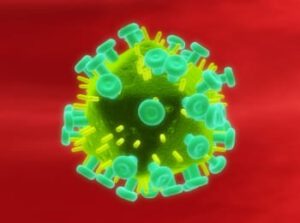
AIDS used to be considered a male-specific health problem – but now, the majority of its victims are female.
Those numbers aside, some studies have shown that certain females take much longer than males to progress to AIDS after being infected with HIV. Now, researchers have now found a mechanism that might explain this difference.
A two-stage study by Siddiqui et al. identified a genetic variant on the X chromosome that may slow progression from HIV-1 to AIDS in women. The study analyzed both primates and humans, demonstrating that genetic association findings can successfully translate across species, even over an evolutionary distance of 25 million years.
The researchers first analyzed 136 rhesus monkeys infected with SIV (simian immunodeficiency virus). They found a common genetic marker on the X chromosome among those monkeys that progressed slowly to AIDS-related disease. Researchers then studied 303 HIV-infected humans and found an analogous marker on the X chromosome –the SNP – that may affect progression to AIDS in human females.
The results, published in the online version of The American Journal of Human Genetics, indicate that in humans, females with one copy of the C version of progressed to AIDS more slowly than either females with TT or males with a C or T. (Note that females have two X chromosomes, while males only have one.)
Females with one copy of the C version of the SNP took an average of eight years to progress from HIV infection to AIDS, nearly four times less than females with no copies or males. Women with two copies of C are so rare that none were found in the study.
Previous research has linked some degree of HIV resistance to a mutation in SNP i3003626, which is in a gene that encodes the CCR5 receptor.
The CT genotype of is more frequent among Asians than Europeans or Africans, suggesting that future research may find that HIV-1 positive Asian females have a slower progression to AIDS. Future studies may also be able to use this X chromosomal variant as a clue toward new drug development for both genders.



